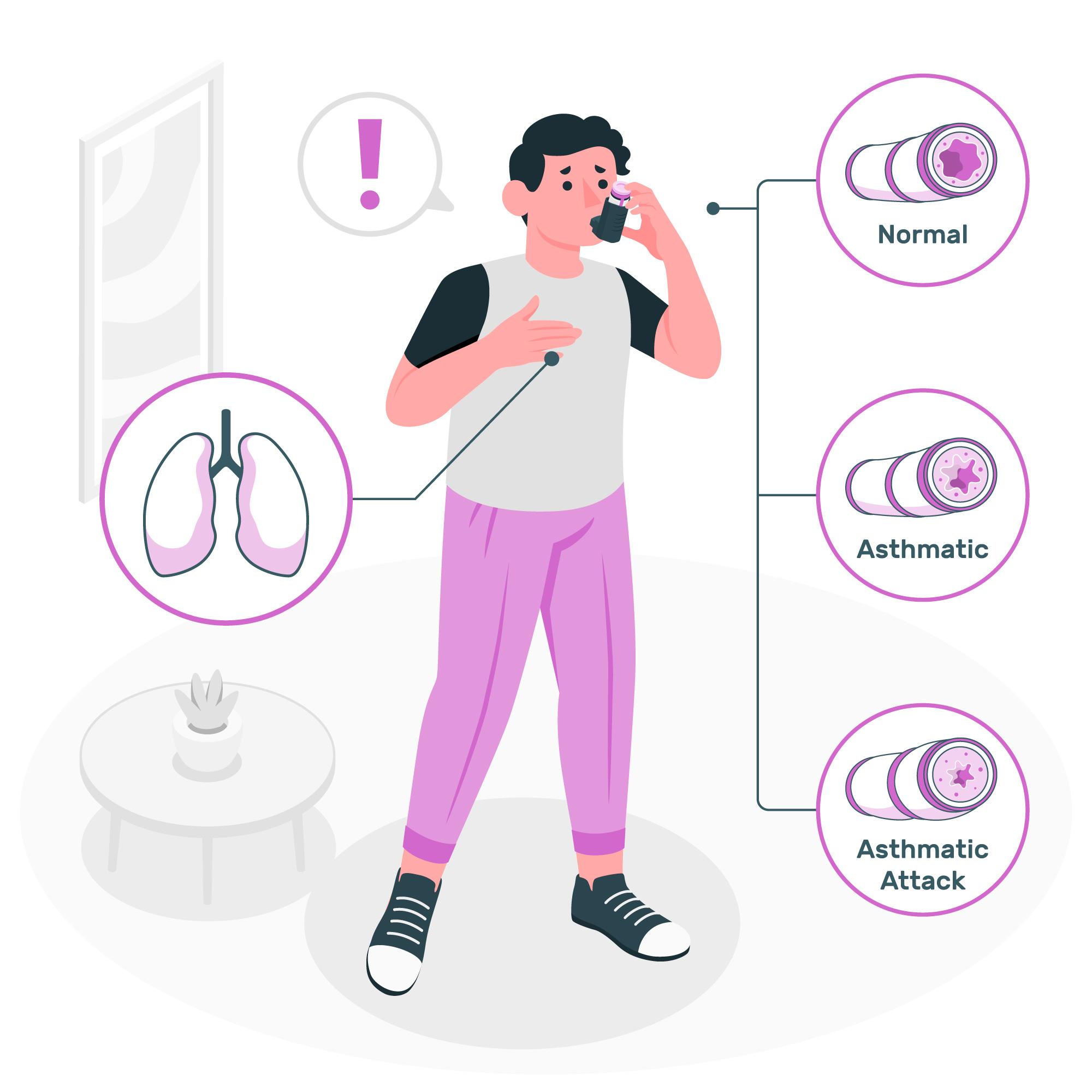
Understanding Asthma: Causes and Triggers
Introduction: Asthma is a chronic respiratory condition that affects millions of people worldwide. It causes inflammation and narrowing of the airways, making it difficult to breathe. Understanding the causes and triggers of asthma is crucial for managing the condition effectively. Let’s explore what causes asthma and some common triggers that can worsen symptoms.
What Causes Asthma?
The exact cause of asthma is not fully understood, but it’s believed to be a combination of genetic and environmental factors. Some people are more genetically predisposed to developing asthma, especially if they have a family history of the condition. Additionally, exposure to certain environmental factors, such as allergens and respiratory infections during childhood, can increase the risk of developing asthma.
Common Triggers of Asthma:
- Allergens: Allergens are substances that can trigger allergic reactions in people with asthma. Common allergens include pollen, dust mites, pet dander, mold spores, and cockroach droppings. When exposed to these allergens, the immune system can overreact, leading to inflammation and narrowing of the airways.
- Respiratory Infections: Respiratory infections, such as the common cold, flu, or respiratory syncytial virus (RSV), can trigger asthma symptoms. Infections cause inflammation in the airways, making it harder to breathe, especially for people with asthma.
- Environmental Factors: Environmental factors like air pollution, cigarette smoke, strong odors, and changes in weather conditions can irritate the airways and trigger asthma symptoms. Polluted air can contain particles that irritate the lungs, leading to inflammation and asthma attacks.
- Exercise and Physical Activity: Exercise-induced asthma occurs when physical activity triggers asthma symptoms, such as coughing, wheezing, and shortness of breath. Cold, dry air and high-intensity activities can exacerbate symptoms in some individuals.
- Emotional Stress: Emotional stress and strong emotions like anxiety, excitement, or fear can trigger asthma symptoms in some people. Stress hormones released during these emotional states can lead to airway inflammation and constriction.
Conclusion:
Understanding the causes and triggers of asthma is essential for managing the condition effectively. By avoiding known triggers, taking prescribed medications, and developing an asthma action plan with your healthcare provider, you can reduce the frequency and severity of asthma symptoms and enjoy a better quality of life.
To seek medical advice, always consult a Doctor. Here are our recommended experts. Click here
To read more on Respiratory disease . Click Here


